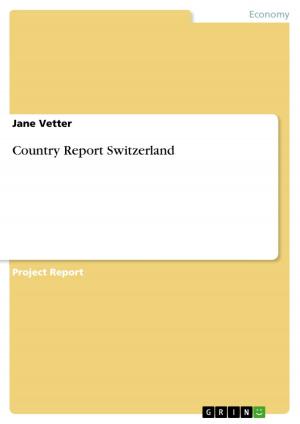Brazil and Portugal. Brothers, Friends or Competitors?
Brothers, Friends or Competitors?
Nonfiction, Entertainment, Drama, Anthologies| Author: | Tamara Berlstein | ISBN: | 9783640646692 |
| Publisher: | GRIN Publishing | Publication: | June 21, 2010 |
| Imprint: | GRIN Publishing | Language: | English |
| Author: | Tamara Berlstein |
| ISBN: | 9783640646692 |
| Publisher: | GRIN Publishing |
| Publication: | June 21, 2010 |
| Imprint: | GRIN Publishing |
| Language: | English |
Seminar paper from the year 2009 in the subject English Language and Literature Studies - Linguistics, grade: 1,5, Justus-Liebig-University Giessen (Anglistik), course: Intercultural Communication, language: English, abstract: At a first glance, Portugal and Brazil do not have much more in common than the language anymore. But you have to bear in mind that the two nations share a common past of more than 300 years, before Brazil declared its independence from Portugal in 1822. Apart from the indigenous indian tribes, it were the Portuguese who established a culture in Brazil. Nevertheless it is almost 200 years now that Brazil had time to develop its own culture. So what is the current Status Quo? It is not easy to answer that question. Of course there are a lot smart books concerning that matter, but in reality there are as many opinions as there are Portuguese and Brazilians. Originally my aim was to introduce the approaches of Geert Hofstede and Edward T. Hall but this would go beyond the scope of this term paper, so I decided to focus on Hofstede's concept of the 'Onion' (Hofstede and Hofstede 2005: 6 ff.). The literature I found was not much more than travel guides, so my statements are mainly based on personal experience and what I learned during my first year of studying. Of course the history plays an important role in building the culture of a nation, however historical facts are only mentioned if necessary for the reasoning.
Seminar paper from the year 2009 in the subject English Language and Literature Studies - Linguistics, grade: 1,5, Justus-Liebig-University Giessen (Anglistik), course: Intercultural Communication, language: English, abstract: At a first glance, Portugal and Brazil do not have much more in common than the language anymore. But you have to bear in mind that the two nations share a common past of more than 300 years, before Brazil declared its independence from Portugal in 1822. Apart from the indigenous indian tribes, it were the Portuguese who established a culture in Brazil. Nevertheless it is almost 200 years now that Brazil had time to develop its own culture. So what is the current Status Quo? It is not easy to answer that question. Of course there are a lot smart books concerning that matter, but in reality there are as many opinions as there are Portuguese and Brazilians. Originally my aim was to introduce the approaches of Geert Hofstede and Edward T. Hall but this would go beyond the scope of this term paper, so I decided to focus on Hofstede's concept of the 'Onion' (Hofstede and Hofstede 2005: 6 ff.). The literature I found was not much more than travel guides, so my statements are mainly based on personal experience and what I learned during my first year of studying. Of course the history plays an important role in building the culture of a nation, however historical facts are only mentioned if necessary for the reasoning.















